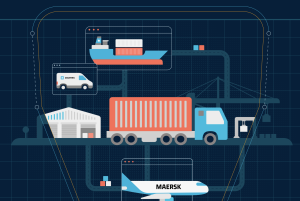 Seasoned Algeria-based procurement and supply chain management professional, Anouar Ali Ammara, talks about the growth potential of African countries in the coming decades, as well as the rising interest and investment in infrastructure, information technology, and data connectivity and storage. All these necessary fundamental elements are coming into action and in place to enhance the intracontinental trade and business exchange.
Seasoned Algeria-based procurement and supply chain management professional, Anouar Ali Ammara, talks about the growth potential of African countries in the coming decades, as well as the rising interest and investment in infrastructure, information technology, and data connectivity and storage. All these necessary fundamental elements are coming into action and in place to enhance the intracontinental trade and business exchange.
Since the final issue of the AfCFTA (Africa Free Trade Area) agreement, all the countries party to it have announced very ambitious objectives and plans to drastically improve intracontinental economics by creating a favourable regulatory environment, including simplification of the general exchange rules, the creation of a standard framework, and the investment in the necessary infrastructures, in particular, the economic exchange zones, logistics hubs and transportation capabilities.
On the other hand, banking services, and digital start-ups are rapidly adapting to the new challenges facing the continent, both in terms of streamlining their processes, and exploring new paths to develop business models for products and services in line with the growth and transformation trends to which African economies and markets are heading.
Despite all those positive aspects, the pace is still slow and the effects on the intracontinental economic exchange remains quite limited, compared to the overall growth in terms of GDP and economic activities; regardless of the sectors specifics, the lack of competitive advantage is placing serious burdens on the local SMEs, hence preventing any quick innovations from going to market, and furthermore scaling up and widening their customer base.
In this series of articles, I would like to focus on why the SC & P function is a major player in setting the pace towards the creation of the dynamics described above and ensuring a smooth transformation of the overall business interactions in the B2B sector. It is necessary to bridge the gaps between the requirements and needs of the customers and the offerings and capabilities of potential suppliers, which is in essence the final objective of creating local content in a new era of local/regional vs global economies.
In addition to all the governmental efforts across the continent to create a significant change in the intracontinental business and economics exchange, supply chain and procurement professionals based in the continent will have a major role to play in bringing substantial integration models and giving a significant boost to a sustainable local content development.
Very often, such products/services will remain very local, and one can see individual “copies” of similar products and services in various regions and countries creating local value for money to their customers, but not having the opportunity to adapt and address other markets in the region, and to extend them further at a continent level.
Lessons have been learned from several initiatives, the likes of Nigeria oil and gas sector suppliers platforms, and the specific local content requirements regulations in various countries. It appears that governmental action, although a prerequisite to any effective local content development, cannot by itself create the necessary dynamics for an efficient and sustainable environment for the development of local businesses and regional exchanges, which in turn, will allow these businesses to extend their offerings to various export markets, starting with the African markets.
That is where supply chain and procurement professionals, as a corporate function and community, have a unique opportunity to contribute significantly to the overall efforts deployed by major companies, SMEs, and other product and services suppliers in the various sectors. The path is open to develop and adapt their capabilities and capacities towards a wider market, with sustainable opportunity for development, growth, and ultimately innovation and creativity, in line with the specifications of African customer bases and requirements.
In the next article, we will develop the pre- and post-pandemic transformations of the procurement function, as well as the current trends and positioning of the CPOs around and within the executive decision-making spheres, including the paradigm shift from supply chain to value chain impact.
By Anouar Ali Ammara, Siemens Head of Supply Chain Management – Maghreb and West Central Africa, who has over 20 years experience in understanding, planning and implementing legal, commercial, and organisational improvements to meet global business challenges and achieve operational excellence in the Procurement and Supply Chain (PSCM) area and beyond.



























